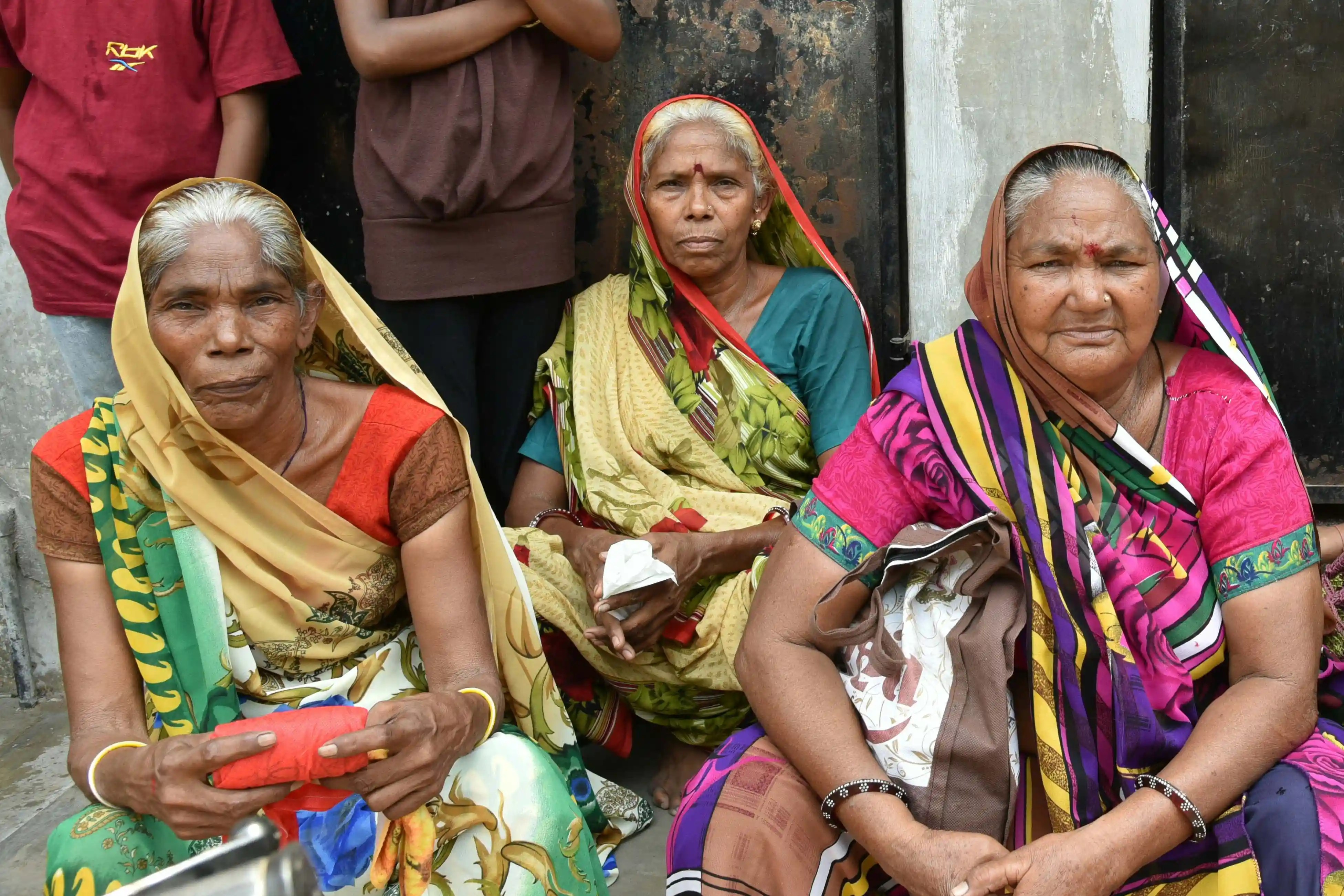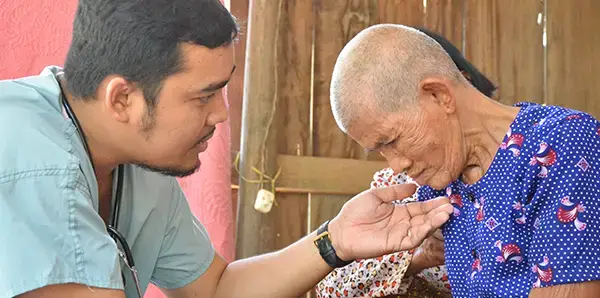Anxious About Support Raising? Remember These 5 Things

Many people, current missionaries included, have told themselves they could never have a job that required them to raise support. Asking friends and family for financial assistance can be uncomfortable under any circumstances, and when you add to this the fear of failing, many qualified Christians with a passion for missions will discount global missions as a viable career option altogether.
We recently had a conversation with two MTW support-raising trainers, Bradley Cordell and Jennifer Miller, about how missionaries should approach support raising. Both Bradley and Jennifer have served as MTW missionaries overseas and raised support themselves. They suggest that a more accurate term for the process of raising support is “ministry partner development” and encourage those interested in global missions to not let fear keep them from pursuing global missions by keeping these five things in mind.
1. Support raising IS ministry.
According to Bradley and Jennifer, people should primarily view support raising as ministry—not as fundraising. This is why they argue that people need a perception shift and that ministry partner development is a better descriptor of the process.
“People often think of ministry partner development as begging and a necessary evil they have to check off a list so they can go do the ‘real’ ministry work. They don’t view this season of life as part of their ministry. There needs to be a mind shift and a focus change that views MPD as holy, good, biblical, and as ministry,” says Bradley.
During this phase of ministry, missionaries are laying the foundation for their ministry by creating partnerships with other missions-minded believers. You are doing something much bigger than merely asking people to donate to a worthy cause—you are mobilizing God’s people to participate in the mission God gave us. Don’t rob your Christian brothers and sisters of an opportunity to obey the Great Commission and engage in our collective mission to make disciples among all nations (Matthew 9:38).
2. Support raising is about building relationships.
When you think of support raising as ministry partner development, the very words imply that you are investing in other people—ministry partners. Therefore, support raising is personal and relational.
“Our premise is that this is … kingdom work and that happens in relationship with other people,” says Jennifer. “You’re talking to them about Jesus. You’re talking to them about building the kingdom, about God’s vision and ministry. These are eternal things, and that is best done as personally as possible.”
She says that this is why face-to-face appointments are critical. It is important that missionaries get to the point where they are sitting down with someone over coffee, or dinner, or at a park, sharing their heart with them and extending a personal invitation to participate in a vision together. Bradley challenges missionaries to treat their ministry partners as friends and teammates.
“Are you including them in the work and sharing what God is doing? Are you thanking them for their investment and taking a personal interest in them? Are you praying for them?” asks Bradley. He says that missionaries who relationally invest in their partners typically don’t lack ministry support.
3. Support raising prepares you for serving on the mission field.
Jennifer and Bradley agree that support raising prepares missionaries for service on the field in ways nothing else can. Both mentioned that support raising is a time God uses to increase a missionary’s dependence on Him and trust in His provision—something every ministry worker needs.
It also develops critical skills needed for cross-cultural ministry such as reaching out to people, inviting them to join something, talking about faith and Jesus, asking hard questions, learning how to graciously respond if someone says no, and even learning how to manage a budget and use a database.
“All of those things … are skills that, if developed, are going to be assets on the field,” says Jennifer. “And so it’s important to see that this is part of an ongoing process of God developing people and preparing them for ministry on the field.
4. Support raising is trusting in God’s provision.
And now for more of what you probably expect to read, but it’s important and true: When it comes support raising, you need to begin by remembering that God is the one who provides. While there are basic best practices that make the process easier—prayer, hard work, relational skills, and casting vision—at the end of the day the funding is a result of God’s provision. “Unless the Lord builds the house, those who build it labor in vain” (Psalm 127:1).
Remember that making disciples among all nations is God’s mission and He cares more about His mission than you ever could. God’s people are the means He has ordained to accomplish this mission and He has promised to equip the Church with everything needed to succeed. He provides for those He calls to serve in global missions.
5. Support raising is biblical.
You may have heard this before but it bears repeating: Throughout Scripture—beginning with the Levitical priesthood in Israel through the ministry of the apostle Paul—God instructs His people to provide for His kingdom workers. Passages such as Numbers 18:21–25, Matthew 10:9–11, and I Corinthians 9:1–18 speak to the biblical rationale of support raising.
Perhaps the most famous missionary in Scripture is the apostle Paul and people often point out that he worked as a tentmaker while serving in ministry. However, it is clear from his New Testament writings (I Corinthians 9:1–18; Philippians 4:14–19) that tentmaking was not the only way he funded his ministry—he also lived off of the generous gifts from people in the church. Paul’s letters clearly indicate that he was not just raising funds, but including his partners in his ministry by thanking them, reporting back on the work they were participating in, and shepherding them.
Don’t let the fear of raising support keep you from pursuing a call to global missions. The process may not be easy but that doesn’t mean it isn’t beneficial or good. Remind yourself of the benefits listed above and challenge yourself to view it as ministry.
Most important: Pray. Pray God would help you trust in His promises and provision. Present your fears before Him and ask Him to give you courage. And if He does call you to global missions, commit yourself to this calling and experience the joy of watching God provide through the generosity of His people and experience the joy of building God’s kingdom alongside your Christian brothers and sisters.
Further Reading:
- The God Ask by Steve Shadrach
- A Spirituality of Fundraising by Henri Nouwen
- People Raising: A Practical Guide to Raising Funds by Will P. Dillon
Interested in serving with MTW? Visit mtw.org/serve to browse opportunities.








